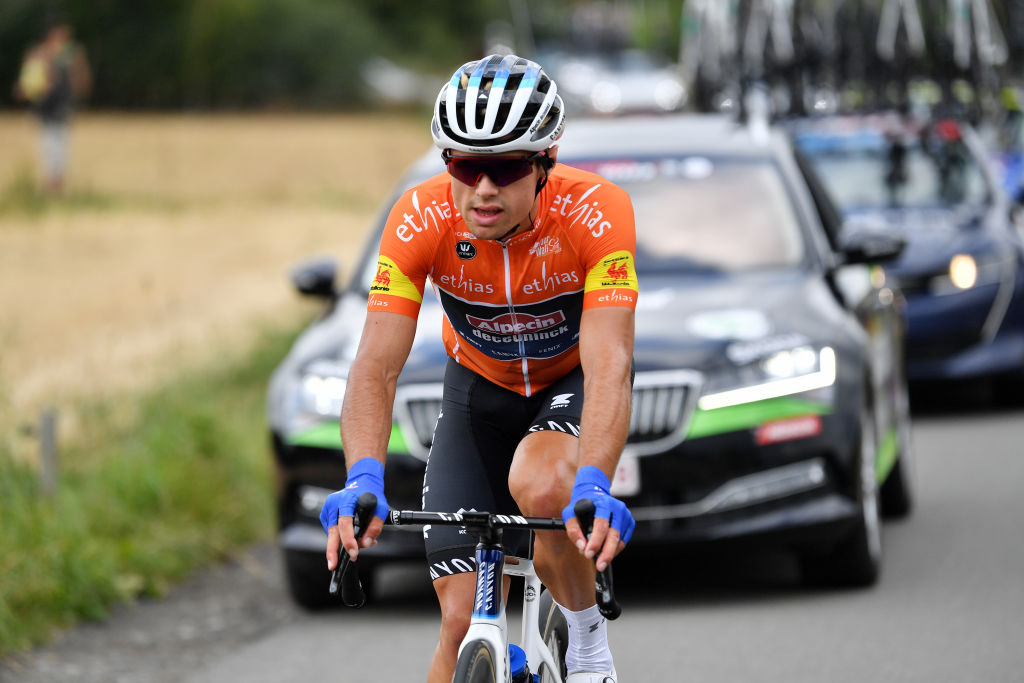
The UCI were compelled to correct a press release issued by Bahrain Victorious that announced the team's signing of Australian Robert Stannard, who received a four-year, post-dated suspension for an anti-doping rule violation, with immediate effect.
The team stated their medical team "could not conclude any wrongdoing" and alleged that "it has never been specified whether the rider is accused of using a prohibited substance or a prohibited method" in the case, which concluded in June.
Stannard continued to assert that he has never knowingly taken a prohibited substance or used a prohibited method in the case based on Athlete Biological Passport (ABP) abnormalities.
He framed his case as a choice, stating, "I had to make a hard choice: accept the ruling and be able to do the sport I love again, or fight to clear my name."
The UCI decided that the values in Stannard's ABP were indicative of the use of a red blood cell-stimulating agent (eg. EPO) or a blood transfusion, however.
A panel of independent experts (Dr. Laura Lewis, Dr. Paulo Paixao and Dr. Jakob Mørkeberg) were unanimous in their analysis of three samples that were outside the norm, in rejecting the rider's experts' alternative explanations, and in their conclusion that the doping is a reasonable explanation for the abnormalities.
“In our view, the data of the athlete bears several patterns indicative of blood manipulation, with clear off-phases around competition in August 2018 and January 2019," the panel noted in the decision document."
The first sample (sample 2) was collected on the first day of the Tour de l'Avenir in 2018 and showed a haemoglobin (Hb) level of 16.8 and a high OFF score (a measure of the stimulation of red blood cell production calculated using Hb value and percentage of immature red blood cells in the sample).
A second sample (sample 6) taken on January 13, 2019, one week after Stannard dropped out of the Australian road championships, showed a high OFF score and low reticulocyte percentage.
"A high OFF score is typically observed when the red cell mass of the organism has been supraphysiologically increased (high haemoglobin) and the body's own red cell production is reduced (low reticulocytes) as a consequence to downregulate the excess in red blood cells," the panel explained, adding that this state is indicative of "the use and recent discontinuation of an erythropoiesis-stimulating agent (ESA) or the application of a blood transfusion.
"In summary, there are several occasions that the athlete has a suppressed erythropoiesis [red blood cell production] at or after competitions which indicate a supraphysiological Hbmass.
"We therefore conclude that it is highly likely that a prohibited substance or prohibited method has been used and that it is unlikely that the passport is the result of any other cause. In summary, the profile bears several features of blood manipulation during the preparation for competition," the panel concluded.
Stannard's experts argued that factors such as a training camp at altitude before sample 2 was taken and extreme training conditions before sample 6 could account for the values, which they tried to argue were not statistically abnormal.
The panel rejected Stannard's expert Dr. Paul Scott's explanations for the values based on his training schedule leading into the Tour de l'Avenir in 2018.
Normally a suspension would be issued from the date of the decision of the UCI Tribunal. However, the judge agreed that the UCI should have taken action promptly after the first sample would have been flagged automatically by the system in 2018.
Because the UCI delayed bringing any Anti-doping Rule Violation against Stannard until years later, the judge allowed, under UCI rules, the period of suspension to be changed to the date of the first suspicious sample.
Stannard's suspension ran from August 17, 2018, through August 16, 2022, and, since the dates were in the past, the period of ineligibility had ended.
However, the 25-year-old was still liable for a fine, which has been redacted from the decision document, along with 2,500 CDF for results management and €3,129 for the cost of the documentation for the blood samples.







